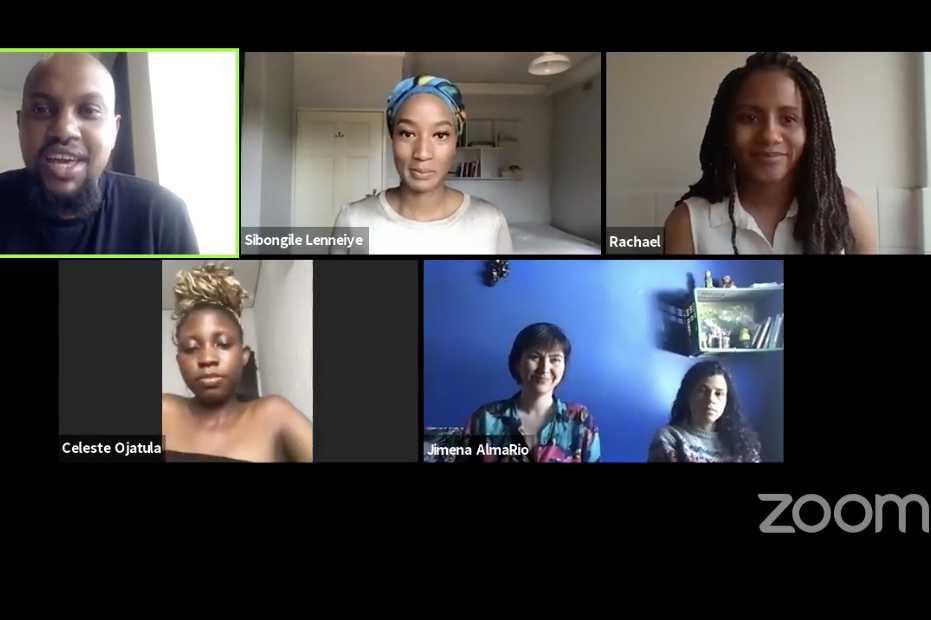NEWS
December 7, 2020

IN BRIEF
Nina Simone, an iconic American singer and civil rights activist, once said: “An artist’s duty as far as I’m concerned is to reflect the times.” Her words are eternally relevant to those searching for powerful ways to voice the grievances and frustrations they face. And young people today were facing their fair share of problems, even before COVID-19. But like the artists of the past, they have been using music, film and other art forms to contextualize and challenge the status quo, and push governments to be more open at the same time. So what inspires young people to use [...]
SHARE
Nina Simone, an iconic American singer and civil rights activist, once said: “An artist’s duty as far as I’m concerned is to reflect the times.” Her words are eternally relevant to those searching for powerful ways to voice the grievances and frustrations they face. And young people today were facing their fair share of problems, even before COVID-19. But like the artists of the past, they have been using music, film and other art forms to contextualize and challenge the status quo, and push governments to be more open at the same time.
So what inspires young people to use music as a way to make their voices heard? Recently, Accountability Lab and Restless Development brought together six female artists from different parts of Africa and Latin America as part of an ‘Artivism Concert’ during the OpenGov Digital Youth Summit.
The artists- Rachael Ngwarai (stage name Zarae) and Sibongile Lenneiye (stage name Sibo) from Voice2Rep Zimbabwe, Celeste Ojatula (Celeste) from Voice2Rep Nigeria and the Colombian band La Mucura based in Argentina- talked about how they are using their music to push for change.
Rachael wrote her song titled I Can’t Breathe, which has verses in Shona- a widely-spoken language in Zimbabwe – on the day civil servants across the country were demonstrating for better pay during the COVID-19 lockdown. The song is her rendition of the #BlackLivesMatter movement and speaks to young people’s struggle to find hope for the future of the country. She remembers that day felt ‘heavy’ and everyone seemed anxious. Through her song she is voicing what she has felt and experienced, and has been journaling, over a long period of time. Young people in Zimbabwe do not feel they have the freedom to live the life they want. This, she says, is changing how young people are relating to religion as they look for something higher than themselves to hope for the change they want to see.
Sibongile through her rap They Freed Zimbabwe, Who Will Free it Again? tries to shed light on the overarching challenges and the nuanced social, cultural and political issues facing Zimbabwean society. While she has been using verses on social media to question social taboos, the COVID-19 pandemic forced her to reflect on where the country is today. Through her song, she acknowledges and respects the struggles of the older generation to free the country from colonial powers, but the question remains- where do Zimbabweans go from here? She sees the heroes from the past as the new villians. Every generation has a fight- the older generation fought colonialism and the youth today need to take the baton and fight their battle. She worries that governance dysfunction at the top has begun to ‘bleed’ into youth which will eventually result in a culture where ‘thieves’ are rewarded.
Celeste’s song Lie focuses on the decay of African society and how young people can come together to do the right thing. The song, with verses in English and Yoruba- a language spoken predominantly in South Western Nigeria- echoes the plea of young Nigerians who are tired of the same lies and lack of government accountability. Celeste believes young people need to be aware of what is happening around them if they want to fight injustice, such as the issues raised by the recent #EndSARS movement, which is a series of mass protests driven by young people to end police brutality in Nigeria.
Bonnie and Jimena’s song Manifesto is what they call ‘a proposal for life’. They wrote the song in Spanish while living in the mountains in Colombia. The song begins with: “You know that war burns us.” It ends by talking about hope, beauty and the resilience to create, despite the destructive context of conflict and the struggle through which members of our communities are fighting for fundamental rights. They believe music can be a means for social transformation and see their song as the bridge between arts and the future they hope to see.
While young people around the world are facing similar challenges, young artists everywhere are finding their voices like this and pushing for change. But they are also wracked with doubt as to whether this passion is enough to bring about the social transformations that they envision. Some of these conversations also leave certain groups of young people behind- women for example, and these female artists see inclusion of women in all sectors as a way to amplify women’s voices and push for gender equality. When asked how we can build back better after COVID-19- these artists answered that they want to see a world in which music can drive cultural and societal change. Nina Simone would be proud.
